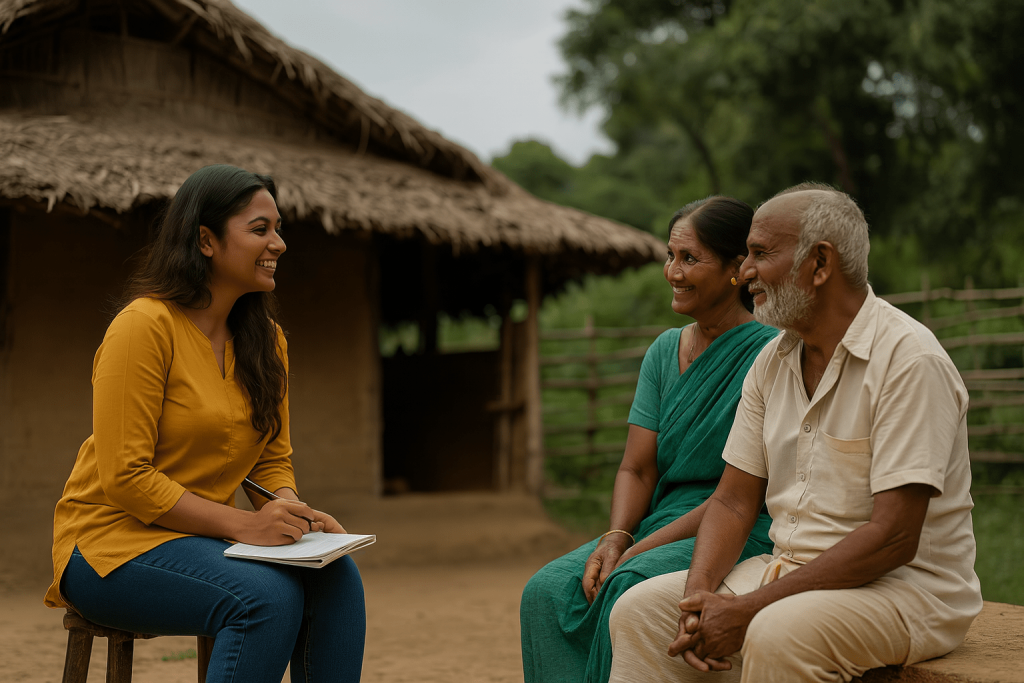My journey started as a manager of a cellular firm. Precisely, my primary job was to sell smartphones. I sold phones, promising better communication among people. Once on a field visit to Lava, a tribal village in West Bengal, I realized that the phones I sold could connect humans but not humans with nature. Upon reflection, I discerned that I have restricted myself, too, with spoken words and visible issues. The increasing disconnection with our inner-self concerned me. With the hope to find solutions, I joined the Gandhi Fellowship.
As a fellow, I worked on bridging the gap amongst 10 schools and seven communities. Initially, it was about going to school every day and trying to change everything within a week. However, with repeated failure, I understood that I was failing because I assumed that I had solutions. Although it is easy to write now, it was difficult to accept then. It was an epiphany that the greatest obstacle in connecting with my inner-self is me. With acceptance, I learned that knowing myself is more important than seeking solutions for all of my issues.
Staying with the villagers, interacting, eating and, praying with them, I have understood their active emotional quotient towards nature.
Post fellowship, I got an opportunity to work in Arunachal Pradesh—a state oozing out diversity in terms of geography, societal norms, and trade and commerce. An adrenaline rush it was! I was overwhelmed that I could explore that place not as a tourist but as a researcher. In a field visit to Lazu, a village adjacent to the Myanmar border, I met a person called Ranjan (name changed). He shared that their survival is directly dependent on Bamboo. Often, they cut it, but there is a season in which they don’t touch it. It is to provide space for Bamboos to grow. Neither they use pesticides nor modified crop cultivation. They practice indigenous farming that best suits their climate, geography, and demography. I believe that if we can amplify this kind of practice and promote it on the global platform that can create a ripple effect on the world, which can make some significant mindset shift.
During my tenure, I have visited many villages and have met many more Ranjans. Staying with the villagers, interacting, eating and, praying with them, I have understood their active emotional quotient towards nature. These experiences over a year took me to a stage where I started questioning the concept of sustainability and development. I wondered what they meant. But only wondering is of no use. To understand and find my answers, I have joined the Indian School of Development Management (ISDM).
ISDM has made me realize two things: first, our knowledge base about people and their interactions is still very inadequate in nature; second, each person has tremendous potential. She or he alone can influence the lives of others within the communities and countries. Precisely, this place helps me to put together two things: my interest in management, and learning gained from both the corporate and the rural communities. I believe learning and insights from both the worlds have enabled me to become more sensitive and deploy a customized integrative approach to achieve targets and design appropriate interventions.
By Debabrata Saha, a student of 2019-20 batch of PGP in Development Leadership at ISDM




